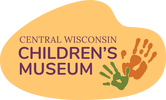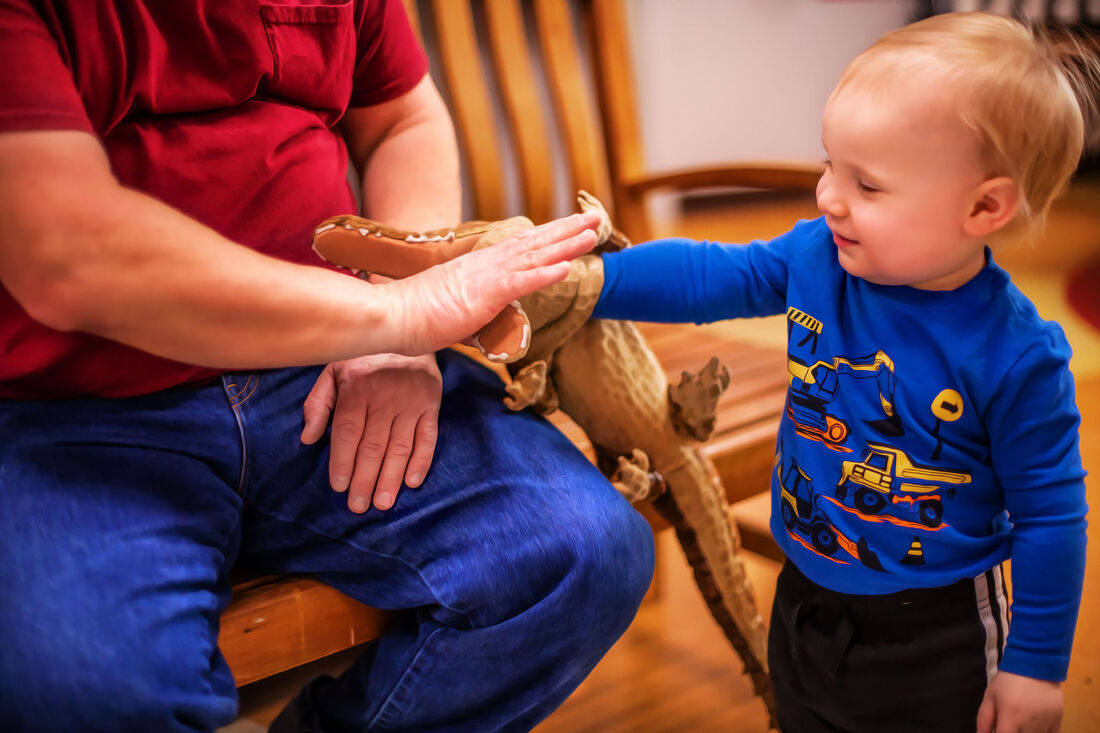Our Mission
The mission of the Central Wisconsin Children's Museum is to engage children and families by providing a space where learning and play come together.
|
Our History
CWCM opened its doors in May of 1997 at the CenterPoint Mall in a humble 1,200 sq. ft. storefront. Caring families and businesses in the Central Wisconsin community made it happen. The "Our Future is Now" Capital Campaign rallied an army of donors, volunteers and stakeholders to support a truly grassroots expansion. An expanded museum opened in November of 2010 at 1100 Main Street. Today CWCM serves thousands of children and their caregivers. |
Early Learning
There are five important components of early childhood learning that are developed through activities at the Children's Museum.
Creativity, Invention and Imagination
For children, the ability to create, invent, pretend and imagine is an essential form
of play. Art projects, creative expressions and role-playing are great ways for children
to build their self-esteem, express their emotions, and learn openness to new tasks
and challenges. Encouraging children's imaginative play and curiosity will open
the door to enhanced learning experiences in all areas of their development and
foster initiative to direct their own learning.
Mathematical, Scientific, Logical and Problem Solving
Encouraging conceptual thought and the development of problem solving skills in
the areas of math, logic, and science helps children build a strong foundation for
future learning. These activities develop abilities to acquire, organize, and use
information in increasingly complex ways to satisfy that curiosity. For example,
playing with building blocks enables children to acquire an understanding of basic
math and physics skills and also develop fine motor skills.
Social and Emotional Development
Children develop their understanding of cooperation and social interaction through
activities that engage several participants in a high level of interactive fun. These
activities develop children’s feelings about themselves and others, their ability to
form relationships, skills needed to maintain positive relationships, ability to
understand the perspective of others, and skills needed to succeed in group settings.
There is a direct relationship between a child’s social and emotional well being and
overall success in school and life.
Language and Communication
These activities help children acquire language skills in the areas of listening and
understanding, speaking and communicating, and early literacy. Language has
an essential impact on the development of a child’s brain during the first years of
life. This development can be nourished by engaging in meaningful experiences
with adults and peers that require children to effectively express their ideas and
feelings, listen, and understand others. Even before children can read and
write, they are acquiring basic understandings of concepts about literacy and its
functions. Regular and active interactions with print, in books and in the
environment, are essential for later development in reading and writing.
Physical Health and Motor Development
These activities promote and develop children's physical abilities, and emerging
knowledge and practices related to health, safety, and nutrition. Children’s future
health and well-being are directly related to the development and strengthening of
their large and small muscles, sensory experiences, and practicing healthy behavior.
Good physical health and motor development allow for full participation in learning
experiences.
Information excerpted from the Wisconsin Model Early Learning Model.
There are five important components of early childhood learning that are developed through activities at the Children's Museum.
Creativity, Invention and Imagination
For children, the ability to create, invent, pretend and imagine is an essential form
of play. Art projects, creative expressions and role-playing are great ways for children
to build their self-esteem, express their emotions, and learn openness to new tasks
and challenges. Encouraging children's imaginative play and curiosity will open
the door to enhanced learning experiences in all areas of their development and
foster initiative to direct their own learning.
Mathematical, Scientific, Logical and Problem Solving
Encouraging conceptual thought and the development of problem solving skills in
the areas of math, logic, and science helps children build a strong foundation for
future learning. These activities develop abilities to acquire, organize, and use
information in increasingly complex ways to satisfy that curiosity. For example,
playing with building blocks enables children to acquire an understanding of basic
math and physics skills and also develop fine motor skills.
Social and Emotional Development
Children develop their understanding of cooperation and social interaction through
activities that engage several participants in a high level of interactive fun. These
activities develop children’s feelings about themselves and others, their ability to
form relationships, skills needed to maintain positive relationships, ability to
understand the perspective of others, and skills needed to succeed in group settings.
There is a direct relationship between a child’s social and emotional well being and
overall success in school and life.
Language and Communication
These activities help children acquire language skills in the areas of listening and
understanding, speaking and communicating, and early literacy. Language has
an essential impact on the development of a child’s brain during the first years of
life. This development can be nourished by engaging in meaningful experiences
with adults and peers that require children to effectively express their ideas and
feelings, listen, and understand others. Even before children can read and
write, they are acquiring basic understandings of concepts about literacy and its
functions. Regular and active interactions with print, in books and in the
environment, are essential for later development in reading and writing.
Physical Health and Motor Development
These activities promote and develop children's physical abilities, and emerging
knowledge and practices related to health, safety, and nutrition. Children’s future
health and well-being are directly related to the development and strengthening of
their large and small muscles, sensory experiences, and practicing healthy behavior.
Good physical health and motor development allow for full participation in learning
experiences.
Information excerpted from the Wisconsin Model Early Learning Model.
Photos by Block Photography, LLC | 715-581-4762 | blockphotographyllc.com
The Central Wisconsin Children's Museum is a not-for-profit 501(c)(3) organization.
We are able to offer our classes, events, and exhibits through donations from our generous community and visitors.
We are able to offer our classes, events, and exhibits through donations from our generous community and visitors.


